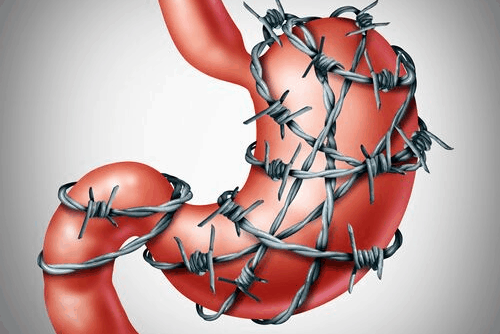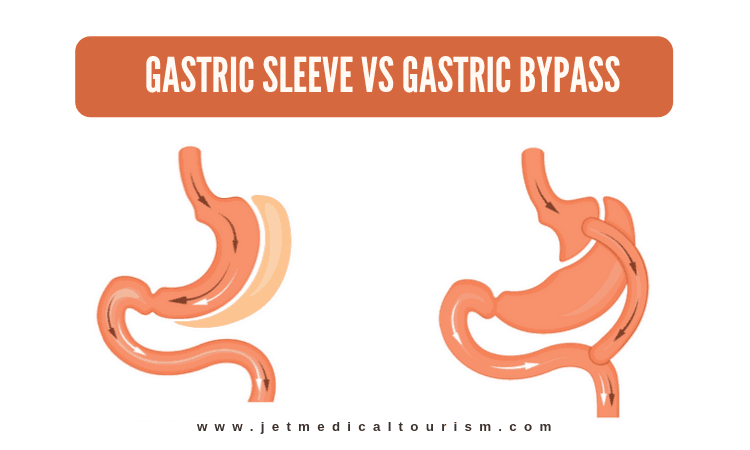Worried About Obesity? Here Are Top 20 Gastric Sleeve Questions And Answers to Solve Your Concerns
Table of Contents
1. Is a gastric sleeve worth it?
2. Is gastric sleeve safe long term?
3. What are the benefits of gastric sleeve surgery?
4. How painful is gastric sleeve surgery?
5. Can you drink alcohol after gastric sleeve?
6. What is the recovery time for gastric sleeve surgery?
7. Which surgery is better: gastric sleeve or bypass?
8. What is the average monthly weight loss after gastric sleeve?
9. Can liquids stretch your stomach after gastric sleeve?
10. How much weight should I lose after gastric sleeve surgery?
11. How quickly do you lose weight after gastric sleeve?
12. Can you stretch your pouch after gastric sleeve?
13. Which medications to avoid after gastric sleeve surgery?
14. What pain medication can I take after gastric sleeve surgery?
15. What is the success rate of gastric sleeve surgery?
16. I am not feeling full after gastric sleeve. What shall I do?
17. What is the pre op diet for gastric sleeve?
18. How to restart weight loss after gastric sleeve?
19. How long do you lose weight after gastric sleeve?
20. How much does gastric sleeve cost?

Are you considering gastric sleeve surgery to help you lose weight? If yes, then it is incredibly important for you to be aware of the entire procedure and what happens after.
Gastric sleeve surgery is not a one-time procedure – there are lots of long-term aspects to it including diet and exercise options.
If you’re thinking about getting a weight loss surgery procedure, you’d want to get as much information as possible about all the lifestyle adjustments you’d have to make. If you have any confusion or questions, you shouldn’t hesitate to talk to your gastric sleeve surgeon.
Meanwhile, we have compiled a list of most common gastric sleeve questions and answers to get you started.
Is a gastric sleeve worth it?
The before and after results and patients’ reviews of gastric sleeve surgery portray a very favorable picture. This weight loss surgery is absolutely worth it if you are dedicated to the procedure and doctor’s guidelines about a pre-op and post-op diet and workouts.
On an average, a patient undergoing gastric sleeve surgery loses nearly 66% of excess body weight within a year. If that’s not convincing enough, consider this: unlike other weight loss surgeries, gastric sleeve only requires you to stay at the hospital for 1-2 days. Once your procedure is done, the results are permanent.
So, if you’ve been struggling to lose excess weight and are tired of dieting and exercising, a gastric sleeve procedure is an incredible option.
Is gastric sleeve safe long term?
Gastric sleeve surgery is considered very safe as compared to other commonly performed weight loss surgeries. It’s truly a boon for obese patients who are looking for a permanent way to get rid of their excess weight and subsequent ill-effects.
When performed by a competent and experienced surgeon, gastric sleeve procedure has little to no complications. Another thing to keep in mind is that gastric sleeve surgery doesn’t require the surgeon to create a new connection between small bowel and the stomach (unlike other weight loss surgeries). So, the chances of developing any long-term complications are minimal.
There is also almost no risk for marginal ulcers or internal hernia after getting a gastric sleeve procedure. Both of these complications are quite common in patients who undergo other types of weight loss surgeries.
RELATED READ: Weight loss surgery in Mexico: How to choose the safest option
What are the benefits of gastric sleeve surgery?
Well, the main advantage of this procedure is obviously a dramatic weight loss. But that’s not the only benefit.
In addition to losing nearly 70% of excess body weight, patients who undergo gastric sleeve surgery also experience other significant benefits including:
- Improved cardiovascular health
- Long-term remission for type 2 diabetes
- Permanent relief from obstructive sleep apnea
- Relief from joint pain
- Relief from depression and social isolation
- Relief from gallbladder disease
- Relief from pregnancy complications in female patients
- Improved fertility
ALSO READ: Pros And cons of gastric sleeve surgery
How painful is gastric sleeve surgery?
 Before your procedure starts, you’ll be put under a healthy dosage of anesthesia so you won’t feel any pain or discomfort during the surgery. Other than that, you might feel a little tugging sensation around your incision(s) but that’s all.
Before your procedure starts, you’ll be put under a healthy dosage of anesthesia so you won’t feel any pain or discomfort during the surgery. Other than that, you might feel a little tugging sensation around your incision(s) but that’s all.
Very few patients experience slight pain in neck or shoulders after the procedure but it’s nothing some pain medication can’t alleviate!
When you talk to your surgeon about your gastric sleeve questions and answers, you can ask them about possible pain medications in case you feel pain after procedure.
Can you drink alcohol after gastric sleeve?

Not right away. You must avoid alcohol for at least the first 6 months after your gastric sleeve surgery. After that, talk to your surgeon to know whether consuming alcohol will be an astute idea or not. Every person is different and depending on your case, you might be allowed to drink small amounts of alcohol in moderation.
What is the recovery time for gastric sleeve surgery?
Most people are required to stay in the hospital for 1-3 days after their procedure. They can get back to normal physical activities within 3-5 weeks.
But as we said earlier, every patient is different. Gastric sleeve surgery is laparoscopic which means the surgeon performs weight loss procedure by making multiple small cuts. The smaller the cuts, the shorter the recovery period.
So, if the surgeon has to perform an “open” gastric sleeve procedure, it will require making a larger cut. In this case, the healing can take longer. It’s best to talk to your gastric sleeve surgeon regarding your estimated recovery time.
RECOMMENDED READ: Preparing for gastric sleeve surgery: A step-by-step guide
Which surgery is better: gastric sleeve or bypass?
It depends. Gastric sleeve surgery is the best option for highly obese people who want to lose 60%-70% of their excess body weight within 12-18 months (on an average). If you have a Body Mass Index (BMI) of 50+, then a gastric sleeve surgery is a very effective first step to lower your weight.
On the other hand, gastric bypass surgery is ideal for people who need to lose 50%-80% of excess weight within 12-18 months. If the patient has a BMI of 40+, a gastric bypass is a much better option for them.
YOU MIGHT WANT TO READ: Gastric sleeve vs gastric bypass
What is the average monthly weight loss after gastric sleeve?
Once you undergo a gastric sleeve procedure, you can expect to lose 30 to 40 pounds within the first 3 months. After that, you should lose 1-2 pounds every week for the next 12-15 months. Once you review all the gastric sleeve questions and answers in this guide, you will have a much better idea of how you will achieve your weight loss goals.
Can liquids stretch your stomach after gastric sleeve?
Not quite. Actually, impulse eating, binge eating, and/or over-eating is what can stretch your stomach after the procedure. That goes for fluids too. As long as you consume small portions and stop eating once you feel full, your stomach will be fine.
And make sure you don’t drink any liquids 30 minutes before and after your meals. Mindless eating and drinking must be avoided to prevent stomach stretching.
How much weight should I lose after gastric sleeve surgery?
This is one of the most common gastric sleeve questions that people ask. Most patients lose about 60% of their extra weight over the next 12-18 months. For example, if you are 120 pounds overweight, you will lose nearly 72 pounds on average. However, some people lose less while others lose more. If you follow a good diet and exercise regimen as recommended, you’ll most likely lose more weight.
How quickly do you lose weight after gastric sleeve?
Every patient who undergoes gastric sleeve surgery loses weight at a different rate. In our experience, men generally lose weight faster than women. It’s not a rule, just a general observation.
But you can most definitely expect to lose 3-4 pounds per week for the first 6 weeks following your surgery. After that, you’ll continue losing 2-3 pounds every week. In other words, you’ll most likely lose 30-40 pounds during the first 3 months after surgery.
Can you stretch your pouch after gastric sleeve?
Almost all patients experience a little stretching in their pouch over time – it’s completely natural. But, it is highly unlikely that your pouch will stretch all the way back to its old size. Even if you eat a large meal every now and then, it will still not stretch your pouch back to its original size.
That being said, please don’t indulge in overeating or drinking sugary carbonated drinks too often after a gastric sleeve surgery as they can stretch your pouch significantly. Another way to ensure your stomach pouch doesn’t stretch too much is to chew your food thoroughly and take smaller bites.
YOU MIGHT ALSO LIKE: Gastric sleeve pouch reset 10 day diet
Which medications to avoid after gastric sleeve surgery?

If you have undergone a gastric sleeve surgery, you should avoid medications like aspirin, NSAID, Ibuprofen, Alka Seltzer, Pepto-Bismol, Corticosteroids, and Naproxen. These medications can cause ulcers and other complications in patients of weight loss surgery.
Don’t forget to consult your gastric sleeve surgeon about your current prescription medications. If you take meds for depression, diabetes, hypertension, etc., their doses may need to be adjusted after your surgery.
What pain medication can I take after gastric sleeve surgery?
We recommend talking to your surgeon regarding possible pain medications after your gastric sleeve procedure. Only they can prescribe the best medication based on your health, age, and medical history.
But to give you a general idea, Acetaminophen based pain meds (like Tylenol) are considered safe for gastric sleeve surgery patients.
What is the success rate of gastric sleeve surgery?

Gastric sleeve surgery has a very high proven success rate across the globe. Millions of people choose to undergo this weight loss procedure every year with remarkable and visible success. After your gastric sleeve surgery, if you eat right and workout regularly, you will definitely lose up to 70% of your extra weight in the first year alone.
I am not feeling full after gastric sleeve. What shall I do?
If you are not feeling full after your surgery, then it’s most likely because you are not eating enough protein.
For the first 10 days after your gastric sleeve procedure, you are required to consume 20 grams of protein every day. After that, you should consume 60-80 grams of protein every day. It’s very important to include protein-rich sources of food in your diet, including eggs, Greek yogurt, fish, low-fat cheese, low-fat deli meat.
Eating enough protein with every meal will help you feel full for longer periods of time.
What is the pre op diet for gastric sleeve?

Pre-op diet for a gastric sleeve procedure generally starts 3 weeks before the surgery. You should ask your surgeon about the pre-op dietary requirements while you discuss other gastric sleeve questions and answers.
DO CHECK: Preparing for gastric sleeve surgery: A step-by-step guide
In most cases, patients are recommended reduced intake of carbohydrates before their surgery. You should limit your portions of carbs like refined sugars (soft drinks, candy, sweets), pasta, and bread before 3-4 weeks of your surgery.
You should also maximize your daily protein intake during this period. Make sure you eat plenty of eggs, lean ground beef, chicken, salmon, olives, nuts, and other healthy fats before your gastric sleeve surgery.
And then 2-3 days right before your procedure, you’ll be required to switch to an all-liquid diet of gelatins, broth, and water. You will be asked to stop drinking/consuming anything starting at midnight on the day of your procedure.
CHECK OUT: Gastric sleeve surgery post op diet
How to restart weight loss after gastric sleeve?
Sometimes, patients experience stalling in their weight loss journey after getting a gastric sleeve. But there is a very easy and effective way to restart your weight loss – a pouch reset diet.
If you feel your pouch has stretched or you have gotten off-track with your weight loss after a gastric sleeve procedure, a pouch reset diet can work wonders for you. We recommend consulting your weight loss surgeon about a reset diet.
How long do you lose weight after gastric sleeve?
Most patients lose up to 70% of their extra weight within 12-18 months after getting the surgery. So, ideally, you can expect to continue losing weight after about 2 years following your gastric sleeve surgery. After that, you’ll have to maintain a healthy diet and workout routine to stay in your new shape.
How much does gastric sleeve cost?
There is a huge difference between the average cost of gastric sleeve surgery in Mexico vs. the average cost in the US. While it usually costs around $15,000-$21,000 in the US, the same procedure costs only about $4,000-$8,000 in Mexico.
ALSO CHECK: Gastric sleeve cost in Mexico: VSG Tijuana Mexico
Do you have a question that’s not listed in the above gastric sleeve questions and answers? Don’t worry, our experts at Jet Medical Tourism® would love to help you! Get in touch with us today to talk to one of our friendly advisors. 




